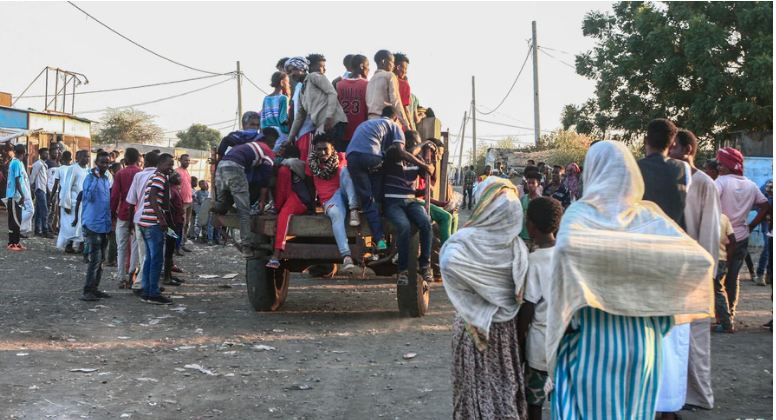
The unpredictable and volatile security situation in Ethiopia’s Tigray region challenges the continuing scale-up of relief operations, planned to reach all people in need, UN humanitarians said on Wednesday.
The COVID-19 pandemic has increased the challenges, with victims living in cramped quarters for the displaced in the regional capital of Mekelle, the UN Office for the Coordination of Humanitarian Affairs (OCHA) said. With the tight living conditions, there is insufficient isolation to mitigate a large-scale outbreak of COVID-19.
“Health challenges include the lack of essential medicines, for mobile health and nutrition teams, and the lack of medical equipment, including oxygen cylinders in Shire, as well as fuel shortages for referral and ambulance services,” OCHA said. Heavy rains and insecurity delay shelter and non-food support for the displaced.
“Food distribution remains the main component of the emergency response,” the humanitarian office said. As of April 28, the government and World Food Programme have distributed more than 19,000 metric tons of food, reaching 1.1 million people in 35 districts in the region.
An inter-agency humanitarian convoy reached Samre and Gijet towns in the southeast zone last week, providing emergency food, nutrition supplies and non-food items, OCHA said. A health clinic was established in the still-dysfunctional Samre Hospital.
Two referral hospitals set up in Adigrat and Axum have psychosocial services for survivors of gender-based violence. The UN Population Fund has three health kits for the clinical management of rape.
The UN humanitarians and partners distribute 19 sexual and reproductive health kits to eight hospitals and health facilities in three rural areas.
However, the humanitarian response in Tigray remains insufficient to meet the needs of all affected people, OCHA said. Additional personnel, funds, and unfettered and safe access are required to scale up to the level needed across the region.
Xinhua News Agency
 Africa -China Review Africa -China Cooperation and Transformation
Africa -China Review Africa -China Cooperation and Transformation
